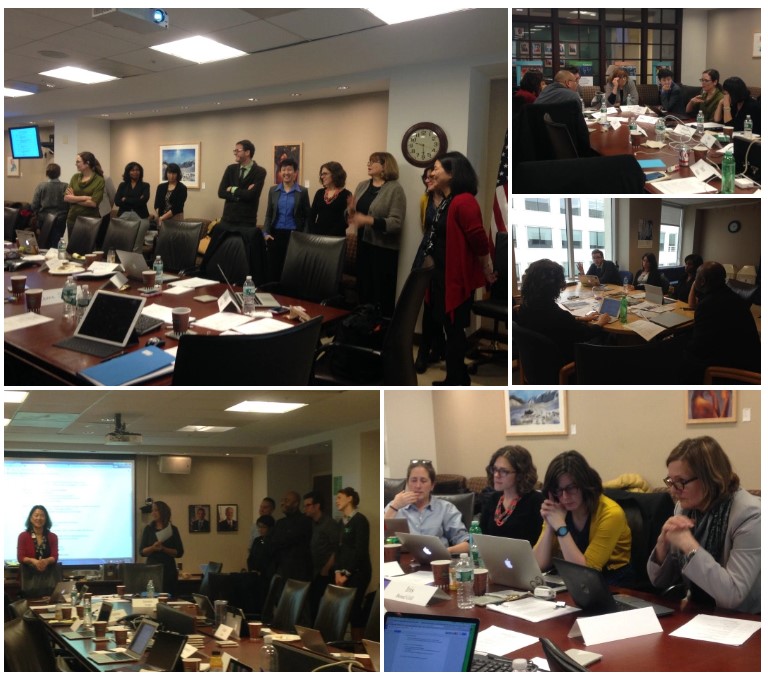By Mozilla Foundation Staff
Two weeks ago, the Mozilla Foundation kicked off Web Literacy Skills for Library Staff, a new project in collaboration with the University of Washington’s Technology and Social Change Group with funding by the Institute of Museum and Library Services. Project goals include:
-
adapt and refine Mozilla’s Web Literacy skills, curriculum, tools, and resources for public library staff and pilot in five public library systems and one library school of information;
-
connect and convey these core web literacy skills with digital badges; and
-
develop a strategy for scalability to other public libraries across the country.
At the launch meeting held in Washington D.C., the project advisory board—consisting of representatives of IMLS, Mozilla, and an impressive group of experts in digital literacy, professional development, other innovative work and learning in libraries—came together to guide and shape the project. The meeting began with a spectrogram activity that allowed us to surface and discuss various beliefs, ideas, and concerns about digital literacy and libraries.

At the meeting, the advisory board learned more about Mozilla’s mission, goals, and resources for learning and teaching web literacy skills. The discussions that emerged were rich and engaging. Key recommendations include: 1) keeping the primary purpose of the training in this project focused on equipping library staff with web literacy skills, and teaching to others secondary, and 2) presenting badges as connectors and an option, and not the driving force for professional development.
Opportunities and Challenges
Meeting participants brainstormed opportunities and challenges to be aware of as we shape the project.
A few opportunities discussed include:
-
Creating opportunities for librarians to become expert curators of content and online learning experiences
-
Providing opportunities for library information school graduates (and graduates from other programs working as library professionals) to learn new technologies, and how to scan the environment for new technologies
-
Leveraging membership associations as entities that can provide professional development opportunities to their member organizations and their individual library staff members
-
Connecting to existing certifications provided by state library systems
-
Equipping often under-resourced human resource departments with quality open source learning opportunities for staff
The discussion also raised several challenges, including:
-
Engaging unionized workers as partners in empowering staff to develop new skills
-
Empowering staff to gain new and update existing skills
-
Finding time to learn new skills
-
Establishing a culture of lifelong learning for the library profession
-
Navigating the decentralized nature of library systems
Next Steps
Board members joined three subcommittees: pilot selection, evaluation, and scale/sustainability. The immediate next step is to finalize the selection criteria for pilots which will adapt and co-create with Mozilla open source web literacy curricula to develop training, tools, and credentials for staff in public libraries. The potential to collaborate with Mozilla provides library staff the opportunity to be leaders, innovators, and advocates. Selection criteria will include:
-
Diversity of staff in geographic distribution as well as diversity of experience, knowledge, and specializations
-
Diversity of types of systems (e.g., rural/urban, main/branch, union/nonunion, consortia/non-consortia)
-
Significant buy-in from library leadership
-
Capacity to contribute, refine, and remix curriculum and tools
-
Willingness to share experiences with other sites and collaborate as a group
The meeting concluded with a thoughtful discussion about scale and sustainability with several themes emerging:
-
Leveraging opportunities for building web literacy competencies into the professional development and credentials for library staff
-
Reaching out to organizations and leaders who should be engaged and/or informed of the project and its goals
-
Building on existing infrastructures and levers, such as associations, brands, library information schools, and current assessment tools
-
Understanding challenges of technology infrastructures
-
Engaging future leadership now for long-term benefits